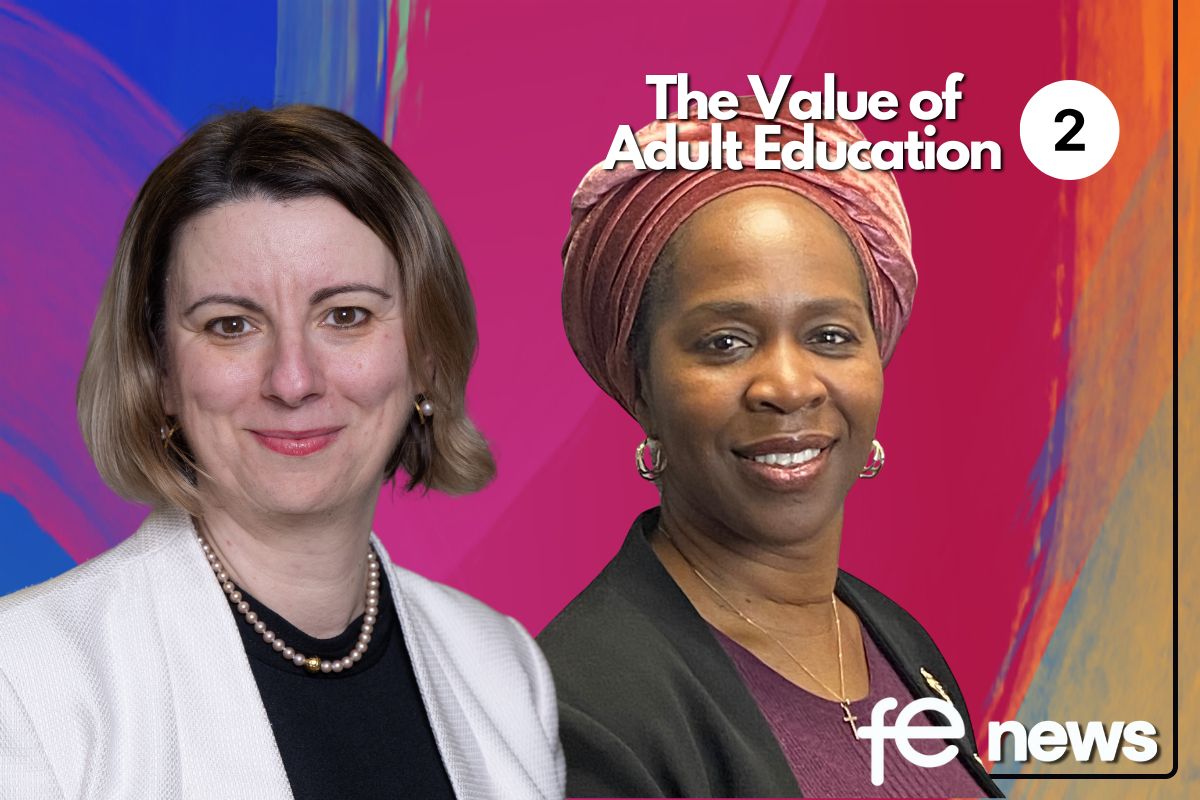10 ways Ofqual, the ESFA and the IfATE can bring fairness and equity to the process of Ofqual recognition

In July 2021 I carried out an independent survey of end-point assessment organisations (EpAOs) to capture their views on their journey toward Ofqual recognition. The results of the survey, alongside my own experiences of working with a wide range of EpAOs has identified a number of areas where the policy is perceived as unrealistic or unfair, the messaging confused, and EpAOs feeling like they are left guessing. As a result, I have summarised my top 10 recommendations to make the processes fairer, smoother and to challenge perceptions.
Before I begin, a little background. On 4th August 2020 the Institute for Apprenticeships and Technical Education (IfATE) announced the transfer of the EQA of end-point assessment to Ofqual, or, for integrated higher and degree apprenticeships, the Office for Students (OfS). The transition to Ofqual means that EpAOs must be recognised by Ofqual in order to remain on the ESFA register of approved EpAOs. The transition is taking place in two phases: Phase 1: EpAOs had until 1st July 2021 to make formal applications for recognition from Ofqual, and have until 16th December 2021 to complete the recognition process. Phase 2: EPAOs have until the 14th April 2022 to make formal applications to Ofqual for recognition, and have until the 16th September 2022 to complete the recognition process.
Recommendation 1: Be realistic and fair about the timeframes
The deadline for phase 1 transition Ofqual applications was 1st July 2021, with recognition to be completed by 16th December 2021. Ofqual takes 12 weeks from application to decision to reject or progress to panel, which means that the decision on an application submitted by the July deadline will not be until 1 October 2021. If the organisation is rejected (most organisations are rejected at their first application) Ofqual offer a feedback meeting. Currently the wait time for these meetings is 2-3 weeks. An organisation then has to take stock of the feedback, address the feedback and resubmit their application, a process which takes at least a month, based on survey feedback and experience. This would mean that a resubmission would not be likely to be made until late November 2021. Ofqual then requires another 12 weeks to review the application, and if approved a panel meeting follows approximately 3 weeks later, and a final decision approximately 2 weeks after that. This takes the timeframe for completion to March 2022. If you work this logic backwards, even applications submitted as early as mid-April 2021 will struggle for recognition to be completed by the 16th December 2021 deadline (for example, submit 15th April, Ofqual decision by 15th July, resubmit end August, Ofqual decision end November 2021, panel mid-late December 2021, and that is assuming an EpAO gets approved on its second submission).
Recommendation 2: Be open and honest about what applications are being assessed against
Ofqual state, in their process flow chart, and their EpAO support webinars that they review applications against the criteria for recognition. I have now seen 3 rejection letters stating that one of the reasons for rejection is the lack of a sanctions policy. If you read the criteria and all of the associated criteria guidance, sanctions are not mentioned. The mention of sanctions only appears in the Ofqual Conditions. Ofqual need to be clear and explicit about what they are assessing against.
Recommendation 3: Reintroduce the right to review
In July 2021, Ofqual removed the right for EpAOs to request an internal review until they have submitted 3 applications “We are currently experiencing an increased demand on our resources due to the EQA transition programme. In order to help prioritise our resources on reviewing recognition applications, we will only consider a request for an internal review of a decision to reject a recognition application after the organisation has submitted 3 or more recognition applications to us within a 12-month period.” This approach, because of the transition deadlines, may result in a situation whereby an EpAO is removed from the register of EpAOs without ever having had the chance to request a review. This seems unfair and unreasonable. It also feels that Ofqual themselves are overlooking their own conditions of recognition which require organisations to ensure the availability of adequate resources and arrangements (Condition A5).
Recommendation 4: Be clear on what conditions do and do not apply to EpAOs
The EPA Qualification Level Conditions and Requirements document page 6 states that the following do not apply to EpAOs: Condition B3, E1, E7, E8, E9, I3, and I4. When you read the Ofqual Conditions (Ofqual handbook) there are additional conditions that do not apply to EpAOs: Condition E3.2l, E3.4a, and E3.4c. Documents produced by Ofqual need to be consistent, just as they would expect consistency in awarding organisation documentation.
Recommendation 5: Provide clarity and guidance on Centres
I am still hearing of Ofqual misadvising EpAOs that they require centre agreements when the EpAO uses an employer to provide the premises or equipment for an assessment but where the employer does not carry out the assessment. In other words, the employer does not handle assessment materials, invigilate or make assessment judgements. The EPA qualification guidance, page 6, is clear: “in some cases, no part of an EPA will be delivered by a Centre as the awarding organisation will deliver the assessments itself. This includes where an assessment takes place on an employer’s premises, but the employer takes no part in the delivery of the assessment. In such circumstances the employer will not meet the definition of a Centre and Condition C2 will not apply (although Condition C1 will apply).” Perhaps the confusion comes from the use of the word ‘delivery’. Delivery has not been defined and if you were to just read the conditions without reading the last paragraph on page 6 of the EPA qualification guidance, you could quite easily be mistaken into thinking that the provision of premises is part of delivery (the Conditions C2 state “Centre undertakes any part of the delivery of a qualification”).
Linked to the Ofqual definition of centres, I have received many queries from EpAOs that do have centres about how to develop a “written and enforceable agreement”, and asking what the difference is between a written enforceable agreement and a contract. The question has appeared most often where the ‘written enforceable agreement’ may be with a training provider who has already contracted with the EpAO, in accordance with the ESFA funding rules P4 (“have a contractual relationship on behalf of the employer for the end-point assessment conducted by an end-point assessment organisation”). For example, could the existing main provider/EpAO contract be amended to include EPA centre clauses, or must the EpAO have a separate written enforceable agreement for the end-point assessment? EpAOs would very much welcome advice on the practical/operational differences between a contract and a written enforceable agreement, and examples in this area.
Recommendations 6: Provide exemplars on governance models
Many EpAOs are struggling with Ofqual requirements of Governance in particular micro EpAOs. It was a specific area of challenge identified within the responses to the survey, and it is one of the most common questions I get asked when approached by EpAOs exploring Ofqual recognition or revisiting their applications post rejection. For example, what should the governing body of an awarding organisation look like? Many EpAOs feel like they are having to guess what Ofqual expect to see, or are facing contradictions. For example, the Ofqual conditions state that for a limited company, the board of directors is the governing body (Ofqual J1.8 definitions) and that where the awarding organisation is not a limited company, a person or group of people having the equivalent status within the organisational structure of the awarding organisation. But a survey respondent said that they were advised by Ofqual that a board of directors could not be a governing body as they would not be independent. I think that this may be the result of legal structures and/or subsidiaries, but it is not clear, and there is obviously confusion which requires clarification. EpAOs would benefit from examples from all types and sizes of organisation to help understand what a governing body may need to be composed of, and where it should sit within an organisation, in order to meet the requirements of Ofqual.
Recommendation 7: Provide exemplars on managing conflicts of interest
Every Ofqual rejection letter that I have seen makes reference to conflicts of interest, with words such as ‘it is unclear’ or ‘insufficient information’, suggesting that, despite the Ofqual webinar and guidance, EpAOs are still unclear of what is expected and how to evidence it. As per governance, many EpAOs feel like they are having to guess what Ofqual want to see and have no idea if Ofqual will accept it when reviewing their application. This was also reflected in the survey results around challenges faced by EpAOs. EpAOs would benefit from examples or case studies of how EpAOs manage conflicts if they are, or are linked to, a training provider, professional body, membership organisation, and so on.
Recommendation 8: be explicit on the differences between ESFA and Ofqual financial approval requirements
I have now seen a few instances of EpAOs approved by Ofqual but rejected by the ESFA on financial grounds. Given the rigour of Ofqual financial checks and the commitment to joined up working between agencies, surely this should not be happening? The Ofqual corporate plan states “working with the Education and Skills Funding Agency to streamline the process for end-point assessment organisations to register and become recognised”. The IfATE EQA consultation talked about “One process for Ofqual recognition and ESFA registration for end-point assessment organisations” and that “There would be a single approach to becoming an end-point assessment organisation, meeting the requirements of both Ofqual and ESFA.” The consultation response (page 21) also stated “ESFA and Ofqual will develop a single approval process to get onto their prospective registers to reduce administrative burden on application”, and the EQA framework states that “The ESFA, Ofqual, OfS and the Institute will share organisational information from the registration application process, for example where their own due diligence checks require it. They will do this in order to minimise the burden on applicants and to increase efficiency”. To help EpAOs understand, it would be extremely helpful if the ESFA and Ofqual could issue a document which explains the difference between the ESFA and Ofqual financial checks, so that an EpAO can understand why, if they have been approved by Ofqual, they are rejected by the ESFA.
Recommendation 9: Ask for missing information, rather than reject on the basis of missing information
I am starting to see comments in Ofqual rejection letters for things that could potentially have been clarified by a simple query via the gateway portal rather than waiting 12 weeks for the rejection letter. For example, I have seen comments such as ‘document x not included’, ’x not provided’, ‘does not appear to include x’’ ‘x is mentioned but not submitted’. Ofqual cannot spend their entire time chasing, but I do feel that there is balance to be struck, and that if it is a case of a missing document, Ofqual should go back to the applicant and ask for the document. This may save time by potentially reducing the volume of applications being rejected and subsequently resubmitted and re-entering the 12-week review cycle.
Recommendation 10: instil a culture of support not fear
One of the reasons why I am writing this article is an alarming number of conversations I am having with EpAOs where they want to speak out, question, or challenge but are fearful of doing so (one of the key reasons why my survey was anonymous). They are fearful that by speaking out, questioning, or challenging, it will jeopardise their recognition application or ongoing recognition. This is obviously a real concern, but even more of a concern with regard to ongoing delivery and compliance with the Ofqual Conditions for EpAO reporting, particularly in relation to adverse effects. If EpAOs are already fearful of Ofqual, they may be too scared to report any potential adverse effects to Ofqual. From a personal perspective, this perception may stem from the Ofqual approach. Ofqual readily reiterate that they are a regulator, which leaves EpAOs perceiving that they cannot approach Ofqual for support for fear of triggering interventions and fines rather than receiving support and advice on approaches or solutions. EpAOs have overwhelmingly reported on previous surveys that they really value the support and advice provided by their existing EQA providers. Ofqual can support, in fact it is one of the key components of the regulators code, it would therefore be helpful for Ofqual to make it clear to EpAOs what and how they can support EpAOs as they operate, and perhaps for existing Ofqual regulated EpAOs to provide examples of when they have contacted Ofqual and how they have been supported. This may help to overturn the current perceptions.
On a closing note, not a recommendation as I know the answer will be ‘no’. Ofqual have slotted apprenticeship end-point assessment into the existing legislation, but there is frustration with the language used by Ofqual as it does not reflect apprenticeship language or the apprenticeship market. For example, the terms ‘apprentice’, ‘end-point assessment’, and ‘end-point assessment organisation’ are well known and well used across the entire apprenticeship landscape from apprentices, employers and training providers to policy makers and funding agencies, and yet Ofqual do not use these terms, instead they use the legislative terms of ‘learner’, ‘qualification’ and ‘awarding organisations’. It would be fabulous if the apprenticeship language could be recognised and adopted by Ofqual.
If you are interested in reading the results of this year’s survey you can access it here. If you are interested in reading last years survey you can access it via the following FE News article.











Responses